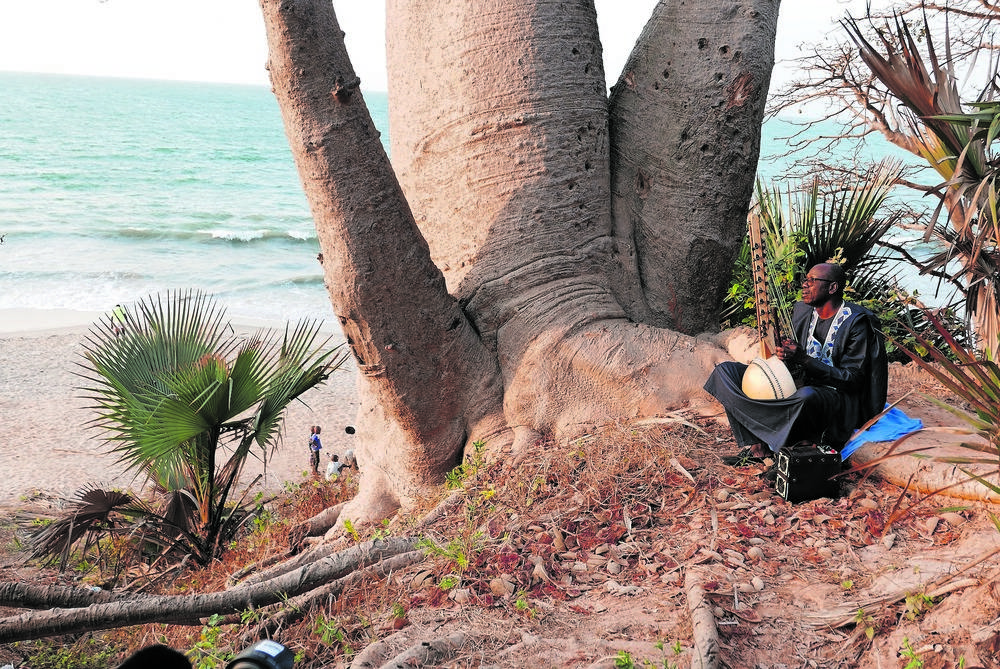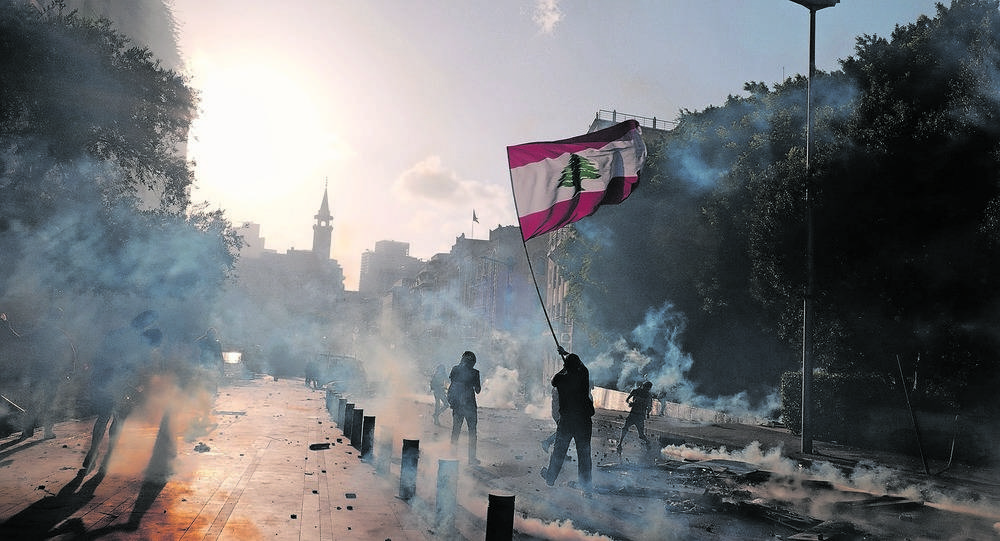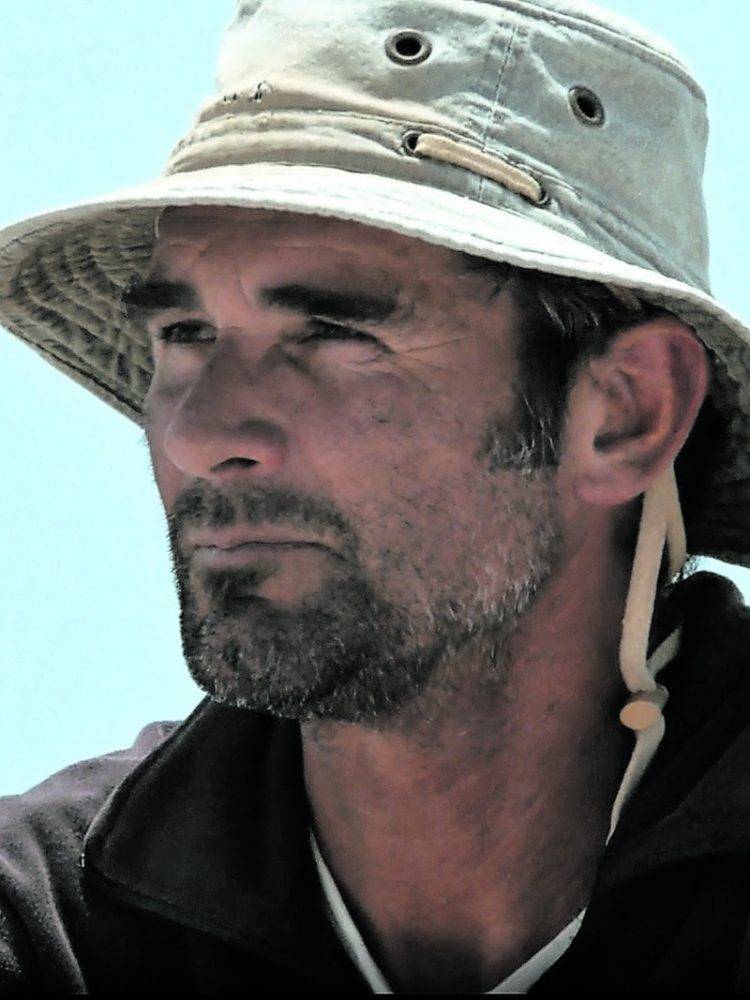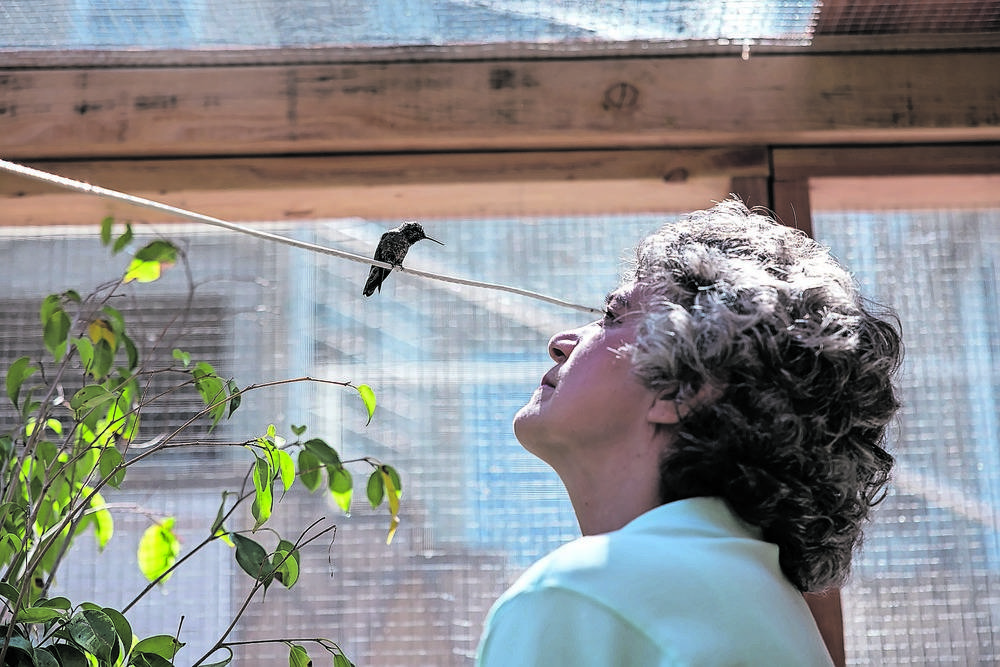It is the summer of 2019 in Palestine’s occupied West Bank. Yellow Israeli bulldozers are crawling ominously into the region of Masafer Yatta. The Palestinians in the area have been living there since the 19th century.
A man in reflective dark glasses hands out eviction orders, which he has signed under the name Ilan. He brazenly tells the Palestinians, “This is a military training ground — you can’t live here!”
One of the men protests, “But Ilan, I have lived here for 70 years!”
Ilan doesn’t flinch and just hands out more orders — expressionlessly.
A distraught elderly woman asks him: “Aren’t you ashamed to do this?
“We have no other land — this is our land!”
This is a scene from No Other Land, young filmmaker Basel Adra’s powerful first-person account of living in Masafer Yatta.
Adra spent five years documenting the evictions and demolitions — of homes, playgrounds, chicken coops, water wells and even a school—often in the company of sympathetic Israeli journalist, friend and the film’s co-director, Yuval Abraham.
 Scenes from Kora Tales
Scenes from Kora Tales
No Other Land is one of three films forming part of a special Palestine focus at this year’s Encounters Film Festival, which is taking place in Johannesburg and Cape Town until 30 June. The other two films are A Fidai Film and Bye Bye Tiberias.
In the deeply unsettling No Other Land, Adra documents the slow-motion eradication of the villages in his home region over a period of five years, where soldiers deployed by the Israeli government are gradually demolishing houses and ruthlessly driving out their residents.
At one point, the relationship between Adra and Abraham is strained by the enormous inequality between them — the young Palestinian suffers under military occupation while the young Israeli lives without restrictions.
The film won the award for best documentary in February at the prestigious Berlinale film festival in Germany. The two filmmakers used their acceptance speech to call for a ceasefire in Gaza and to highlight the deep inequities between Israelis and Palestinians.
 Scenes from Dancing on the Edge of a Volcano, which will be on at the Encounters South African International Documentary Festival in Johannesburg and Cape Town.
Scenes from Dancing on the Edge of a Volcano, which will be on at the Encounters South African International Documentary Festival in Johannesburg and Cape Town.
Abraham said: “I am Israeli, Basel is Palestinian and, in two days, we will go back to a land where we are not equal.
“I am living under civilian law and Basel is under military law. We live 30 minutes from one another, but I have voting rights and Basel does not have voting rights.
“I am free to move where I want in this land. Basel is — like millions of Palestinians — locked in the occupied West Bank. The situation of apartheid between us, this inequality, has to end.”
Both Israeli and German politicians called the two filmmakers’ speech antisemitic. Since the award ceremony Adra and Abraham have experienced a violent backlash. Abraham has received death threats and a right-wing mob showed up at his family’s home, forcing him to postpone his return to Israel.
In a statement of support for the two, Jesper Højberg, who is the executive director of International Media Support, said: “An Israeli-Palestinian co-production like No Other Land should have provided us with some much-needed hope in a situation where many feel hopeless. Instead, the film’s universal plea for peace and justice is being misconstrued as antisemitic and hateful.”
Will No Other Land make a difference, though?
“I’m not sure this will do anything, but, for me, it’s the only hope — that one day it could change something,” Adra said in an interview with the Film Comment website. “If I don’t do it, I ask myself what else I can do — stay silent and let it go?”
No Other Land is not an easy watch but is a must-watch. That is the least we can do as the genocide continues to rage before our eyes.
Meanwhile, A Fidai Film tells the story of when the Israeli Defence Forces invaded Southern Lebanon in the summer of 1982, how they stole the archive collection of photographs and film from Beirut’s Palestine Research Centre.
In this film, Palestinian director and artist Kamal Aljafari reclaims these images, which have been stored for decades by the Israeli ministry of defence, reconstructing them into a narrative of fragmentation that is far more reflective of the region’s history than the one presented in Western media.
 A scene from My Mercury
A scene from My Mercury
The multi-award-winning Bye Bye Tiberias is an intimate film that chronicles the life and family history of the great Palestinian actress Hiam Abbas. She is most familiar to mainstream audiences for her role as Marcia Roy in the TV series Succession.
Abbas is an extraordinary actress, with a remarkable presence, and she has lived a dynamic and full life that is well worth documenting.
Bye Bye Tiberias is directed and narrated by her daughter, Lina Soualem.
In a time when our world is facing a climate crisis, Encounters also screens several films about the environment and resistance to the destruction of the planet.
Every Little Thing is a documentary about hummingbirds. It is as delicate as these gorgeous little creatures. In the hills of Hollywood, Terry Masear cares for wounded hummingbirds, her life transformed by the fragility and resilience of the tiny creatures.
“You’re safe, you’re totally safe,” she tells an injured bird as she gently feeds it with a syringe.
Masear wrote a book about working with the world’s smallest birds, which led to filmmaker Sally Aitken following her over a busy caretaking season in Los Angeles.
Exquisitely photographed and heartwarming, watching Masear take care of the birds — Jimmy, Sugar Baby, Michael, Alexa, Cactus — is so therapeutic that it’s easy to see how her relationship with the winged wonders changed her life.
 Wings: Every Little Thing is a documentary about Terry Masear, who cares for hummingbirds in the hills of Hollywood. Photo: Zachary Ruddell
Wings: Every Little Thing is a documentary about Terry Masear, who cares for hummingbirds in the hills of Hollywood. Photo: Zachary Ruddell
It also tells her life story in the most compelling way. It manages to never become saccharine, with enough of nature’s harshness to counter the “sweetness”.
And beyond the adorability of its central subjects, and their magnetic screen presence, the film is a heartfelt call for humans to reconsider the world and our place within it.
It ends with Bob Marley’s Three Little Birds, telling us “every little thing is gonna be alright”. I truly hope it will be.
South African filmmaker Joelle Chesselet’s brilliant film My Mercury is set on the remote Mercury Island, off the coast of Namibia.
It tells the story of her brother, Yves, a conservationist whose sole and single-minded purpose is to protect the endangered gannet and penguin colonies on the island from the threat of invasive seals.
Since the 19th century, a history of exploitation through the harvesting of guano for fertiliser, and later industrial fishing practices, resulted in the decline of the seabird population by 90%. It left the birds vulnerable to the invasion of seals, which threaten their ecosystem, reproductive practices and survival.
But don’t run away — this isn’t another worthy story about a rugged, conservationist-saviour guy. Yves, who stayed on his own on Mercury Island for eight years, has demons that chase him. Joelle encouraged him to record his time on the island, which he did diligently.
My Mercury includes Yves’ descent with harshly honest footage drawn from those personal video archives and diary entries from his time on the island.
It paints a portrait of personal sacrifice against the harshness of the wilderness, sometimes angry, other times haunted by the deaths and cruelty of nature, but always reflective and tender.
Also focusing on the climate crisis is Temperature Rising. Set between the COP26 and COP27 climate conferences, it follows the lives of three activists as they tackle the climate crisis in Southern Africa.
If you scan the programme, you will see there is a rich selection of nearly 50 films at this year’s Encounters Film Festival.
Here are a few other films that caught my eye:
Black People Don’t Get Depressed
In this film, a filmmaker embarks on the journey of facing her depression — but only when it becomes clear that it is something she can no longer avoid or deny. This is a timely and vital film for South Africa, where issues around mental health cut across all layers of society.
Playing the Changes
The film documents the pioneering life of jazz pianist Darius Brubeck through the musical, political and cultural landscape in South Africa. Born in San Francisco in 1947 to legendary jazz musician Dave Brubeck, the film explores Darius’ childhood, career and activism, from his involvement in creating the first jazz degree in Africa to the establishment of the Centre for Jazz and Popular Music at the University of KwaZulu-Natal, which remains open 30 years on.
London Recruits
It fuses dramatic re-enactments with contemporary interviews and archive footage to tell the story of 60 young white people recruited by the ANC in London in the late 1960s and early 1970s to assist with covert operations in South Africa. Fired up by the political radicalism of the era, the young idealists entered the country under London-based activist Ronnie Kasrils.
Kora Tales
The kora is a 21-string harp from the West African savannah, originally made entirely from local materials. This film tells its definitive tale, with one of the kora’s modern masters, Ballaké Sissoko, as guide.
The Mother of All Lies
Young Moroccan filmmaker Asmae El Moudir uses a miniature replica of the Casablanca suburb she grew up in to reconstruct her memories of living under the iron rule of her grandmother. But Mother of All Lies is about more than a fundamentalist grandmother and the curious relationship between religious belief and the power of images. It is also about how fundamentalism — in all its forms — constrains our true selves and potential.
Rollaball
Skate soccer, created by athletes living with disabilities, is every bit as skilful and antagonistic as the able-bodied version of the game.
In this film, we follow two friends from Accra’s skate soccer team as they live their dream of going from amateur status to players in an internationally recognised sport.
Dancing on the Edge of a Volcano
When a massive explosion hit the port of Beirut in August 2020, destroying a large part of Lebanon’s capital, it was yet another blow to a city that has been witness to its own destruction many times.
For the director and crew of the feature film Costa Brava, it presented the existential challenge of whether to continue with the production of their movie or abandon it.
This is a chronicle of their struggle to get the film made.
See encounters.co.za for times and venues.